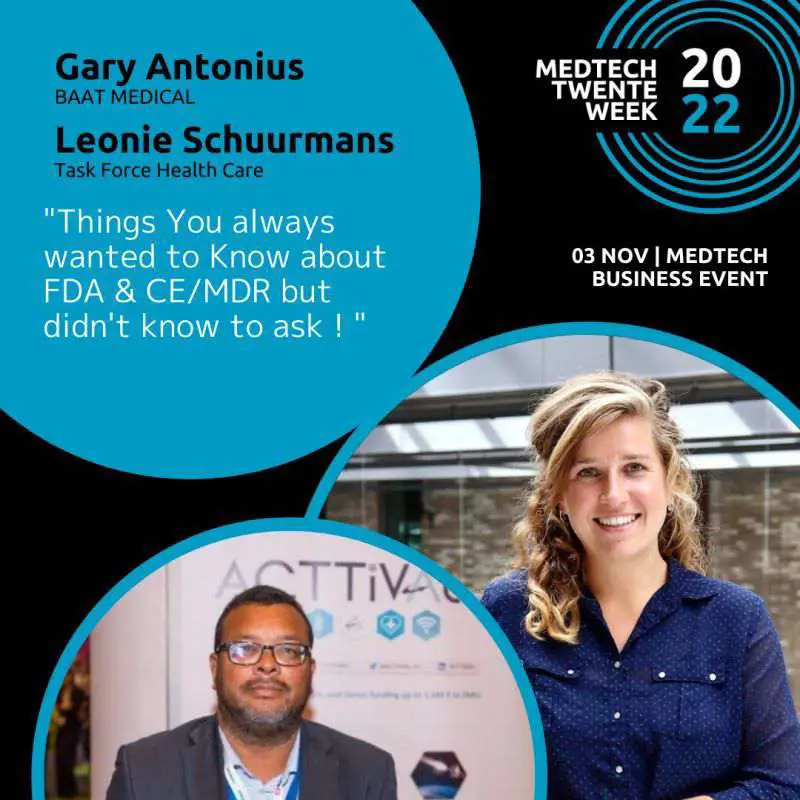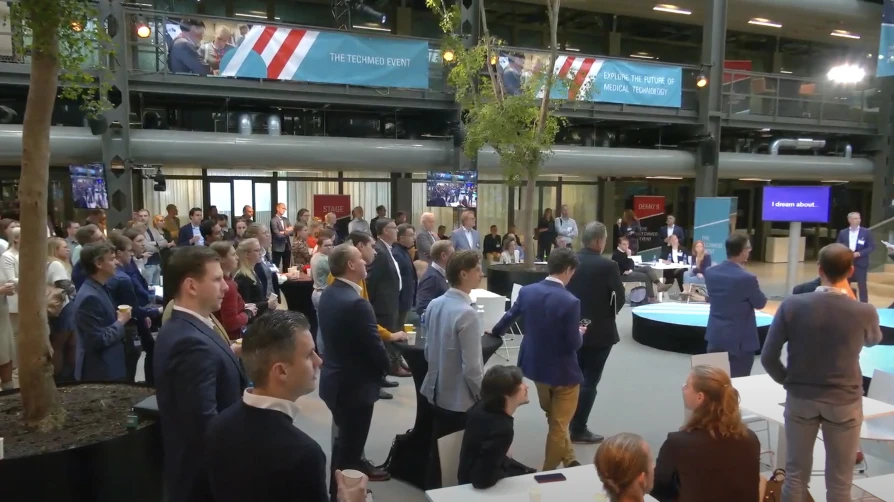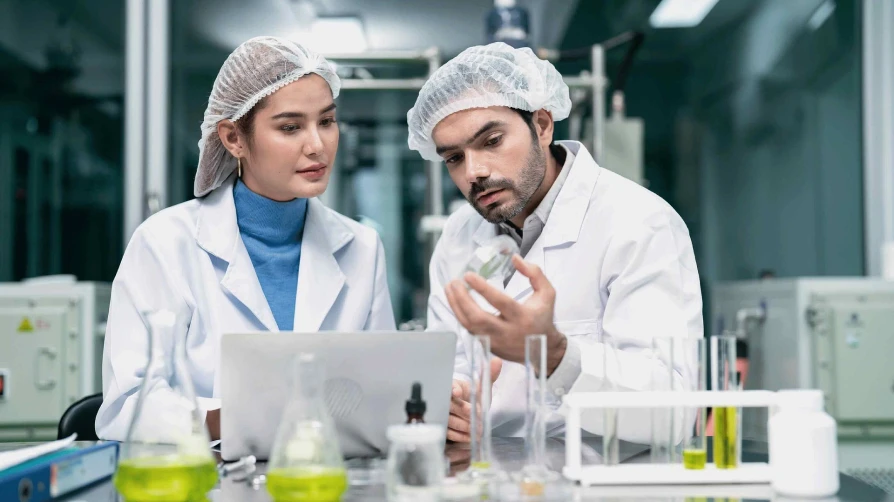Small print matters – Lessons Learned from MedTech company BAAT Medical Products
Lessons learned from MedTech company Baat Medical: Small print matters
Why we write on this topic
“November 2 is the day: this is when the MedTech Twente Week 2022 will kick off. This is where the MedTech Twente innovation cluster brings relevant MedTech partners together, including clinicians, researchers, companies and investors. This cluster, which is focused on accelerating medical technology innovations, will unveil the latest innovations they are working on to the outside world during the event. This story forms part of a trilogy of stories leading up to the event.”
BAAT Medical based in the Dutch town of Hengelo once started out as a spin-off from the University of Twente and has since grown into a recognized medtech scale-up. The company helps global start-ups, scale-ups and multinationals turn an idea into a fully certified medical product. Since its inception, it has been instrumental in the creation of a wide variety of medical products, from 3D printed intervertebrae, electronic devices to medical instruments. Gary Antonius, Business Development Global at the company, related an important lesson he learned to Innovation Origins: “Everything has to be accurate, down to the sixteenth decimal point.”

How is BAAT Medical faring at the moment?
“Things are going really well. We are currently in the scale-up phase and growing fast. More and more new projects are coming in from both new and existing clients. The demand for our expertise in the development and realization of medical products around the world continues to grow.”
What is one important lesson that you have learned?
“We have a multinational company as a client who wants to hand a big project over to us. We will be making a cage for them. This is a 3D-printed intervertebral disc made out of titanium. That means we have to have our quality management system up to scratch. If you are developing a medical device, then you have to document everything you do according to the set standards. You have to be able to prove that it works for the purpose it is made for and, obviously, guarantee patient safety. This is very important for our customers (and ourselves, of course).
You regularly see cases in the news of product liability issues concerning medical products and that is absolutely something you want to avoid. Everything has to be exactly right, from the drawings to the validation, all the way to the sixteenth decimal place. It is an enormous challenge every time to get everything right. But incredibly important, because if you don’t get it right the first time, you not only run the risk of having to start all over again, but it can also lead to all sorts of liability claims.
And speaking of decimal points, in order to market a medical product in America or Europe, you need compliance or/and certification, namely FDA compliance or CE certification. There are nuanced differences between the two. America parties work with the FDA and Europe with CE-MDR. If you want to market a product in both America and Europe, then you have to keep a close eye on those differences and keep a critical eye on yourself and the product as well.
How do you deal with this challenge? How do you make sure you have everything right down to the last detail?
“In order to pull that off, you need a multidisciplinary team with different types of people who keep each other on their toes. We employ people who look at legal aspects, we employ doctors, mechanical engineers, industrial engineers and so on. They all look at the product through different lenses and ultimately all have to come to the same conclusion, which is that the product does its job and that it is safe.”
How is BAAT Medical benefiting from the MedTech ecosystem in Twente?
“BAAT has its origins at the University of Twente (UT) and to this day we have a strong link with UT. Thus, we also attract talented people who come from the university. I think and happen to know that we have a lot to offer young talent. They can learn a lot with us because they get to experience the diverse aspects of product development from A to Z, with several global customers. We also work together with companies from Twente.
We also learned a lot from the Twente mentality, which is to be sincere. We are ‘Twentish’ enough to say whether we think something is a good idea or not and will not go into business with an idea from a company that we don’t have any faith in. Take, for example, companies focused purely on medical software, so-called ‘software as a medical device.’ That line of thinking simply does not suit us. By being honest, we make sure we spend our time on the companies and products that we truly believe in and that also have something to add.”
What are you most proud of so far?
“That we are making medical products that genuinely benefit patients. And that we’ve seen many of our companies grow from start-up to the point where a large company acquires them and they can make an exit. An example is one of our customers who makes 3D printed intervertebral discs. We made sure that everything was sorted out really well from A to Z. Once again you see that you have to have your affairs in very good order, otherwise I am sure there would have never been a takeover.”
Where do you hope to be ten years from now?
“I hope that we will be even more active in America as well as Europe, the Middle East and Asia by then and supply products that really add something to the medical world. How cool would it be if, for example, we could eventually develop an artificial hip that ultimately lasts 50 years instead of the present 25?”
And if you’re operating in so many different countries where regulations differ from one country to another, then surely you end up having to focus on the fine print again?
“You simply cannot get around that. In addition to FDA compliancy and CE certifications, often there are additional requirements that a medical product must meet on a local level. For example, an extra test that has to be carried out or an extra form that you have to submit. But in the end, it’s all about the end result, which is the quality of care and helping our customers take a step forward. It’s all worth it.”
BAAT Medical collaborates with partners, customers and companies in many ways, on a broad level in the MedTech playing field. Be sure to read the Spinal Implant Updates we did with Surgalign.
Get in touch with BAAT Medical to discuss FDA and MDR and CE topics you might face in the medical device playing field. Gary Antonius or Dymphy van der Wilk are happy to schedule a meeting.
Links: Visit medtechtwente.nl and innovationorigins.com
Leave Gary or Dymphy a message



